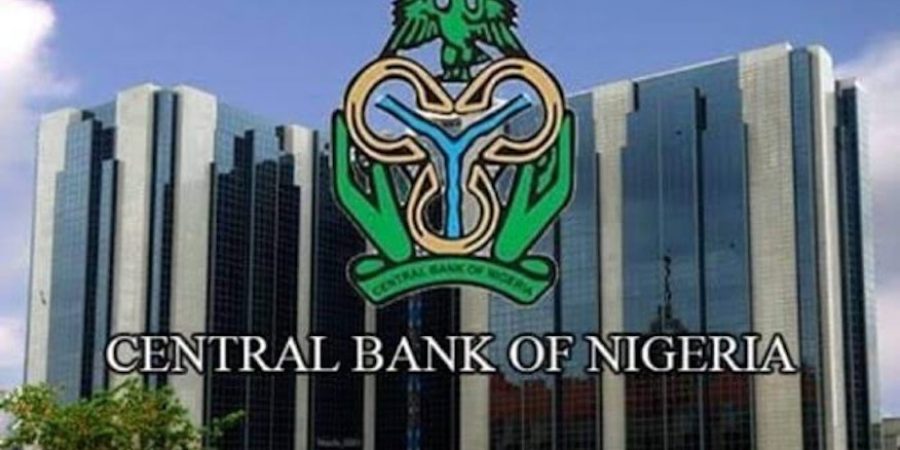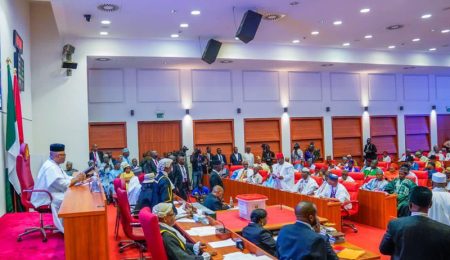The Central Bank of Nigeria (CBN) raised an estimated N3.58 trillion through the Nigerian Treasury Bills (NTBs) and Open Market Operation (OMO) in May 2025, according to a report by the apex bank.
This represents about 75 per cent rise from N2.05 trillion raised in April 2025, and demonstrates a show of confidence in the Nigerian economy by the investors.
According to the “Government Securities” data by CBN, the estimated NTB and OMO offer to investors was at N5 trillion in May 2025, as against the N1.95 trillion in April 2025.
The market in May 2025 reflected mixed sentiments, as the amount allotted for OMO stood at N2.37 trillion, as against the NTBs N1.21 trillion.
Early in the month, investors’ cautious response led to subdued trading as market participants awaited auction results.
The CBN conducted six OMO auctions, attracting subscriptions that exceeded N11.3 trillion and allotments totalling over N2.37 trillion, reflecting firm investors’ appetite amid tight monetary conditions.
Meanwhile, NTB auctions also witnessed robust participation, with subscription levels consistently exceeding offers.
A total of over N1.21 trillion was allotted, particularly concentrated in the 364-day tenor, which saw marginal rate adjustments across the month.
Of the six NTB auctions in May 2025, investors were offered N1.05 trillion and a subscription of N1.42 trillion.
In the secondary market, demand was mostly focused on mid-to-long dated OMO papers, such as the March to May maturities, and new NTB issuances.
However, activity remained constrained by wide bid-offer spreads and periods of thin market liquidity.
Overall, average mid-yield on benchmark NTBs rose modestly by eight basis points m/m to close at 20.51per cent.
By tightening its monetary policy through modest interest rates and large OMO and NTBs auctions, the CBN aims to curb rising inflation and stabilise the foreign exchange rate, thereby fostering a more balanced economic environment.
THISDAY gathered that investors’ demand for long maturities NTBs continued to grow as its stop rate reached 18.9000 – 26.0000 per cent as of May 21, 2025,
The variation in stop rates across tenors also offers insight into investor sentiment regarding short-, medium-, and long-term economic outlooks.
Investors’ diversified demand across the different maturities of NTBs reflects strategic positioning for various investment horizons and signals a healthy trading environment in the Nigerian debt market.
The Mr. Olayemi Cardoso-led Monetary Policy Committee (MPC) of the CBN has jacked up the interest rate by 870 basis points to 27.50 per cent from 18.75 per cent at the start of the year to combat rising inflation. This has led to an equal increase in the yields of Treasury bills compared to last year.
On Treasury bill yield for 2025, analysts at Cordros Research in a report titled, ‘Nigeria in 2025. Reform to Recovery: Navigating the Rebound, said, “Given our expectations of a pause in monetary policy rate hikes and a moderate pace of borrowings in 2025, we expect yields to pare, particularly towards the second half of the year, after a further increase in Q1-2025.
“Specifically, we expect the onset of the disinflationary process in Q1-2025 and the pause in rate hikes, which should begin in March, to influence market sentiments.
“Additionally, while we expect the demand-supply imbalance to persist, the slower borrowing pace could cause yields to temper.
“Considering all the factors, we expect yields to decline and settle at c.18.5 per cent and c.18 per cent on Treasury bills and bonds by 2025 year-end, reflecting our expectations of successful policy pass-throughs.”
Investment Banker & Stockbroker, Mr. Tajudeen Olayinka, attributed the high yield to the factor of demand and supply, stressing that the government deliberately increased NTB supply to encourage a higher stop rate above 20 per cent, or that some institutional investors held back their bids.”
According to him, “the essence is to encourage foreign inflows that could help improve dollar liquidity in the foreign exchange market and cause a moderation in Naira exchange rate until the market attains an equilibrium level.
“I have no doubt that this is the most appropriate decision on the part of CBN and the government at this time. There’s a need to improve dollar liquidity that will eventually force domestic interest rates to moderate subsequently.
“The higher interest rate will likely filter into the equity market to temporarily moderate the bullish sentiments in that market as well.”
Kayode Tokede
Follow us on:

